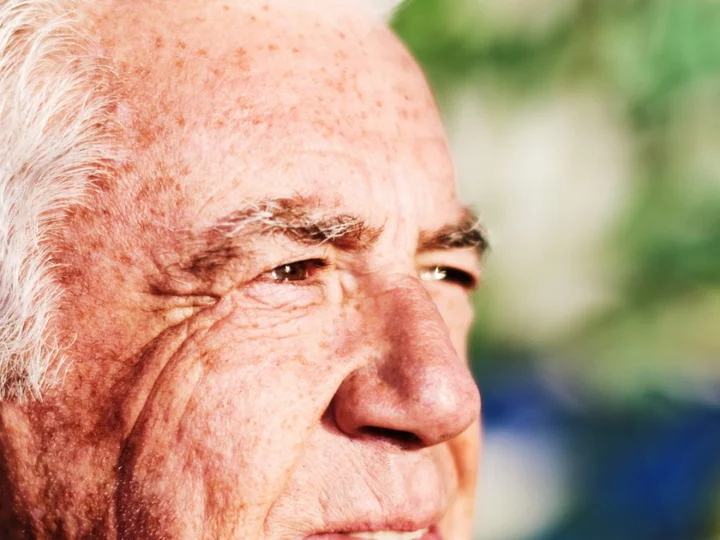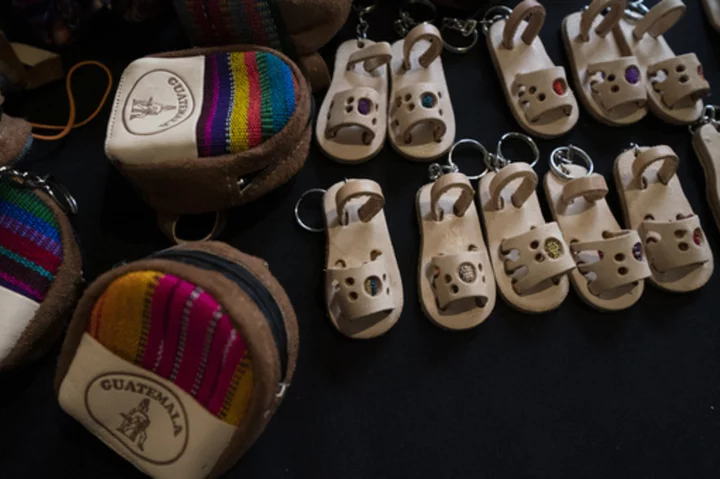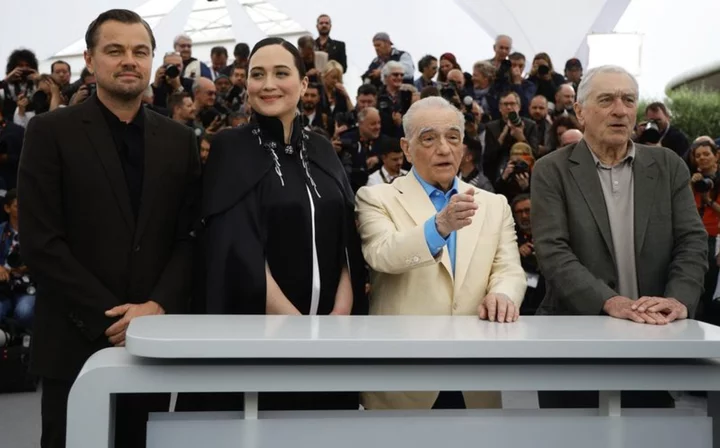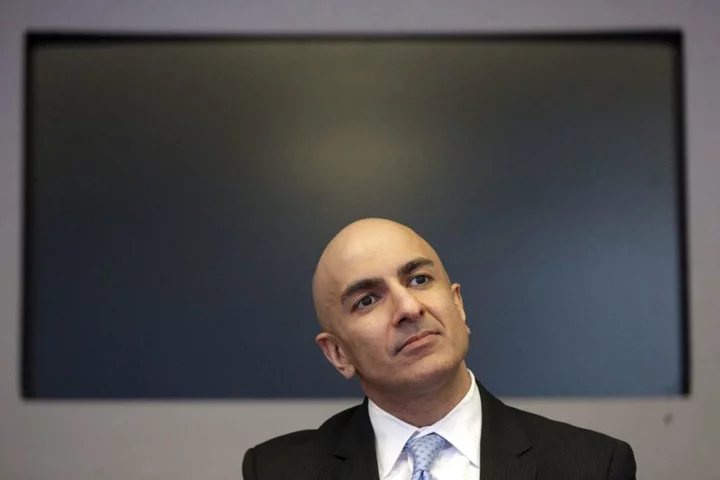
‘Suddenly, I saw Dad again’: The radical technology helping those living with dementia
There is a scene in the 2020 film The Father, starring Anthony Hopkins and Olivia Colman, that is all too familiar for people caring for someone with dementia. In it, Hopkins’ character Anthony struggles to keep up with his daughter Anne’s (Colman) movements. One moment, she is bringing home dinner. The next, she is talking about moving to Paris with a boyfriend he doesn’t like. She’s in his flat. Suddenly, he’s in her flat. Her face shifts – she looks like someone he used to know, then a total stranger. Where is he? When is he? Dementia is a cruel sickness that radiates outwards, seeping into the lives of anyone in its orbit. Patients become lost in a maze of memories. The present day becomes too slippery to hold on to, so many retreat into themselves. Wayfinding – meaning the ability to find one’s way in the world – becomes severely impaired, resulting in anxiety, confusion, and distress that can be very difficult for families and carers to cope with. There is no cure for dementia, and most medical research is focused on finding treatments for diseases that cause dementia, such as Alzheimer’s disease and dementia with Lewy bodies. It’s extremely important work, but there’s also a need for tools that can help those living with dementia as well as their families and carers. As research shows that visual cues can help deliver much-needed aid and relief, a number of small creative companies are stepping in to fill in the gap. Sarah Harrison is the founder of Recognii, the world’s first entertainment DVD made especially for people with moderate to later-stage dementia. The idea for Recognii came about after Harrison began taking care of her father when he was diagnosed with Alzheimer’s in 2015. She and her mother, a former nurse, opted to care for him in their family home in Harrogate, where Sarah also resides. “As the condition progressed, he became very withdrawn,” she recalls. “He couldn’t watch TV or engage himself in his own activities, couldn’t really have a conversation, couldn’t read books anymore because he couldn’t follow the plot.” But amid all the gloom cast by the disease, there’d be breakthrough moments when Sarah saw her father as she always knew him. These moments often came when he watched children’s TV, as the faces of smiling, happy children and brightly coloured graphics grabbed his attention. “It was great, but it was also too childish and didn’t reflect his life,” Sarah says. “I thought, surely there must be something out there that is more simplistic viewing that does reflect adult experiences – but there was absolutely nothing.” An idea began to form. Sarah thought that if she could create engaging short clips of “gentle, joyful stuff” with no storylines, it would bring him some relief from the fog in his mind. “He responded to very bright colours and contrasts, and two-dimensional images, which reflected what we know about the way dementia impacts cognitive and visual processing.” Changes in visual perception occur when the sensory journey between the brain and organs (such as the eyes and ears) gets interrupted, or slows down due to dementia. According to Alzheimer’s UK, the disease can also lead to damage to the eyes or parts of the brain, which can then lead to misperceptions, misidentifications, hallucinations, delusions and time-shifting. Like Anthony’s experience in The Father, time becomes an amorphous thing, which jumps back and forth instead of moving in a linear fashion. As such, older memories can become safer places for dementia patients to revisit. I noticed the iPad gathering dust. She said it wasn’t easy for her to use and she missed getting letters and postcards like she did in the past Famileo, a company that creates “family newspapers” for elderly people – many with dementia – works with families of patients to create personalised hard-copy newspapers that utilise “reminiscence therapy” to help soothe and comfort. “Typically, people with dementia are more likely to remember long-term memories,” explains Tanguy De Gelis, a co-founder of the company. “Famileo includes old photographs of themselves and the family, which stimulates their memory and helps them remember people as they were.” Each photograph included in the newspapers is accompanied by text that helps provide context, so that the reader can easily identify who they’re looking at, as well as their own place in the family in relation to the people in the picture. “Managers and activity coordinators at care homes often tell us that a person’s dementia journey is not linear, that symptoms come and go,” De Gelis continues. “The consistency and reliability of these personalised newspapers allows it to be appreciated even more on the ‘good days’ patients have. It can be very hard for family members to think of things to talk about with an older relative, but the newspaper can be a conversation starter and provide a visual guide for both sides.” Having a physical newspaper is also a boon for many elderly people who struggle with smartphones, tablets and laptops. For De Gelis, it was his grandmother who inspired the idea for Famileo. “I bought my grandma an iPad as a Christmas present so she could keep in touch with the family through our WhatsApp group,” he recalls. “But one day I went to visit her and I noticed the iPad gathering dust. She said it wasn’t easy for her to use and she missed getting letters and postcards like she did in the past.” The slow pace in developing tools for coping with dementia is down to a lack of understanding about the disease, says Dr Emilia Molimpakis, CEO and co-founder of Thymia. For years, patients languished in care homes, their minds deteriorating as families watched on helplessly. “Unfortunately, up until recently, pinpointing clear signs of Alzheimer’s disease relied on invasive and/or expensive medical tests and these often don’t show clear results until the disease has progressed substantially.” But recent developments in medical treatments and in the field of artificial intelligence (AI) have shifted things. Dr Molimpakis’ platform involves building AI-powered tools to improve the speed, accuracy and objectivity of dementia diagnoses. Thymia also uses video game-style activities to test for symptoms of cognitive disorders, she says, such as major depression, anxiety and dementia. “Each game is built around one or more cognitive tests, the results of which show tell-tale signs of symptoms, such as fatigue issues, memory impairment, concentration difficulties and more,” she explains. It does so by using software that analyses “biomarkers” of disease while players complete the activities across three key data streams: voice, video and behavioural measures. By analysing how someone speaks or what facial micro-expressions they make, Thymia’s work-in-progress models have identified symptoms in major depressive disorders with more than 90 per cent accuracy, Dr Molimpakis says. Major improvements in healthcare mean that people are living longer – but in a cruel twist of fate, this means that dementia is becoming ever more prevalent. There are currently more than 55 million people living with dementia globally, and according to Alzheimer’s Disease International, this figure is expected to balloon to 78 million in 2030 and 139 million in 2050. While scientists are working on earlier diagnosis and treatment, the need for coping mechanisms for living with the disease is growing. Harrison remembers how her father would react when she showed him the clips she created. He passed away before the final version of Recognii’s DVD could be launched. “It’s like the clouds would part, just for a few seconds,” she recalls. “Suddenly, I saw Dad again. The moments when you get a glimpse of who they used to be are so precious, because as the disease progresses, you do feel like you are losing them. So having made something that helps bring them back, even temporarily – it’s like a gift.” Read More A One Direction fan claimed she had a brain tumour. Five years after her death, we still need answers ‘Death acceptance brings peace’: Are death doulas the cure for our fear of the end? ‘You always feel like you’ve done something wrong’: Why UK surrogacy laws need a ‘real overhaul’ Jason Manford comforted by fans after announcing death of family member Grandmother praised for refusing to babysit daughter’s newborn for free 7 tips and tricks for hay fever relief
1970-01-01 08:00

With all the politics and maneuvering, how is life in Florida changing for its residents?
For many of those who live in Florida, recent months have brought some changes — many linked to Gov. Ron DeSantis
1970-01-01 08:00

Column-'Taper tantrum' ripples, 10 years on: McGeever
By Jamie McGeever ORLANDO, Florida The curious dance between markets and the Federal Reserve now underway - Wall
1970-01-01 08:00

Economists push back expected Fed rate cut to 2024, NABE poll shows
By Michael S. Derby NEW YORK Economists have pushed back their expectations of when the Federal Reserve will
1970-01-01 08:00

AP PHOTOS: Guatemala-born designer links history and culture with current trends in fashion show
BROWNSVILLE, Texas (AP) —
1970-01-01 08:00

Messi, Ronaldo Lead Saudi Arabia's Multibillion-Dollar Makeover
Saudi Arabia’s tab for using icons of western popular culture to enhance its stature and sway on the
1970-01-01 08:00

Thousands mass for pro-EU rally in Moldovan capital, amid tensions with Russia
Moldovan President Maia Sandu is vying for EU member status, amid fears of a Russian-backed coup.
1970-01-01 08:00

'Belligerent' passenger arrested after hitting flight attendant with intercom phone, Frontier Airlines says
A "belligerent" passenger who was asked to leave a plane departing from Denver was later arrested for striking an airline employee with an intercom phone, Frontier Airlines said in a statement Sunday.
1970-01-01 08:00

'Killers of Flower Moon' star says Native Americans need allies like Scorsese
CANNES Lily Gladstone, who grew up on the Blackfeet Indian Reservation and stars in Martin Scorsese's study of
1970-01-01 08:00

Turkish elections: Simple guide to Erdogan's fight to stay in power
Turkey's leader is favourite to win another five years as president, after taking a first-round lead.
1970-01-01 08:00

Fed's Kashkari open to holding rates steady in June, WSJ reports
Minneapolis Fed President Neel Kashkari said that he could support holding interest rates steady at the central bank's
1970-01-01 08:00

Victoria Beckham’s beauty reveal: ‘David has never seen me without my brows’
Victoria Beckham has said she would not want to be in her twenties again as she used to focus on what she felt needed to be improved upon but now she is “comfortable” with who she is. Beckham rose to prominence in the nineties as a member of girl group The Spice Girls, but later turned her hand to the worlds of fashion and beauty. She said she embraces her look at age 49 but admitted that her husband, former England footballer David Beckham, has never seen her without her eyebrows done. Asked how she feels about ageing, she told The Sunday Times: “I am comfortable with who I am, I accept how I look, I make the best of what I have. “I feel, professionally and personally, really accomplished at 49. I consider how I apply my make-up. But I like how it feels being older. “I wouldn’t want to be 25 again. I was the kind of young woman who would look in the mirror and see what needed to be improved upon, as opposed to what actually looked OK.” She continued: “I’ve always been quite tough on myself, but because of that I’ve also always strived to be the best version of myself. “It’s not about changing anything, it’s just about looking at the best version of yourself.” These days, her signature style is largely removed from the Spice Girls’ heyday and through her eponymous fashion label, she is known for elegant silhouettes with lots of sleek, flowing dresses, palazzo pants and block colours. Beckham revealed she undergoes some laser and skin tightening treatments but underlined that she is “not trying to turn back the clock”. “I think it’s about little things. Same with make-up, it’s about not doing too much, which can be really ageing”, she said. “I went to an event recently and people had very ‘big’ (overfilled) faces. There are some scary options out there.” However, she admitted that she fell victim to the over-plucked eyebrow style and now drawing on her eyebrows is the first thing she does every morning. “Over the years my brows have been so overplucked that if you saw me without it you’d be horrified”, she said. “David has never seen me without my brows. They’re the first thing I do: wake up, put on the brow.” Read More Charity boss speaks out over ‘traumatic’ encounter with royal aide Ukraine war’s heaviest fight rages in east - follow live 7 tips and tricks for hay fever relief Top Films: w/c Saturday, May 27 Soap Guide: w/c Saturday, May 27
1970-01-01 08:00
